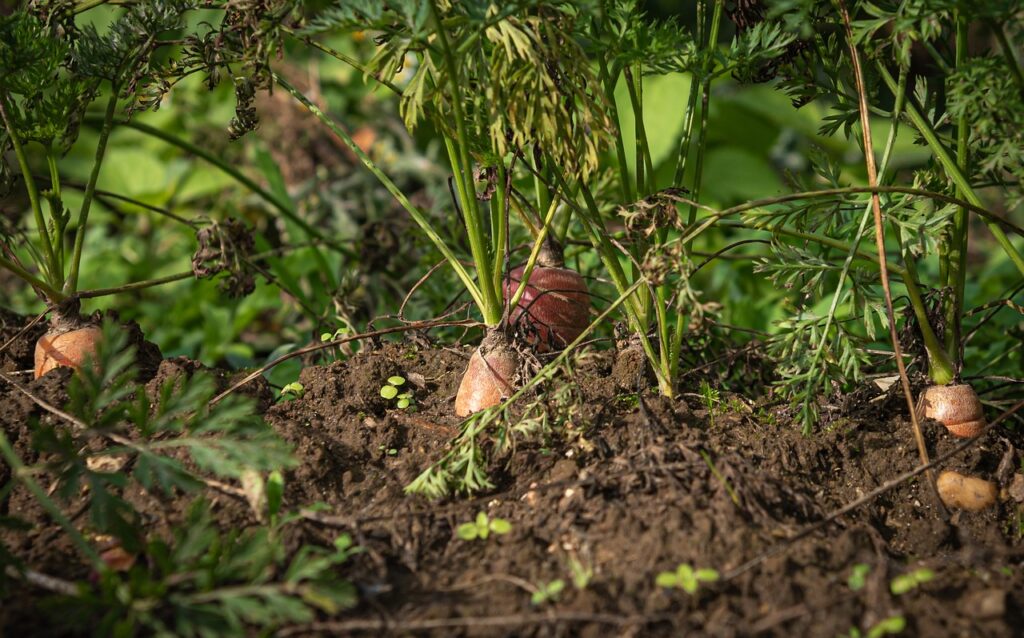In a world where hunger remains a pressing global issue, the terms “food security” and “food sovereignty” are often used interchangeably. However, these concepts represent distinct approaches to addressing the complex challenges of nourishing communities and nations. Food security primarily focuses on ensuring that individuals have consistent access to a sufficient quantity of safe and nutritious food. It aims to alleviate hunger and malnutrition on a broad scale, often relying on international aid and global food markets. In contrast, food sovereignty, the term first coined at the World Food Summit in 1996 by Via Campesina extends beyond mere access to food. It encompasses the fundamental rights of communities and nations to determine their own food systems, prioritize local and sustainable production, and maintain control over the processes that nourish them. It’s a holistic vision that goes beyond addressing hunger to empower individuals and communities to take charge of their food systems, preserving cultural diversity and advocating for equitable and environmentally sustainable practices. In this article, we will delve into the essential differences between food security and food sovereignty, exploring their meanings, principles, and implications for a more sustainable and just global food landscape.
Table of Contents
What Are The Impacts Of A Poor Diet?
A poor diet, characterized by the consumption of highly processed, calorie-dense, and nutritionally deficient foods, has far-reaching and detrimental impacts on both individuals and communities. Health consequences include an increased risk of chronic diseases like obesity, diabetes, heart disease, and certain cancers. Such health burdens can strain healthcare systems and result in reduced quality of life for affected individuals. Reduced life spans are also seen and in a study by The Lancet, one in five deaths globally — that’s about 11 million people — in 2017 occurred because of too much sodium and a lack of whole grains, fruits, nuts and seeds, rather than too much trans fats, sugar-sweetened drinks and high levels of red and processed meats.
Further, beyond the health impacts, the prevalence of poor diets contributes to food-related greenhouse gas emissions, deforestation, and overexploitation of natural resources, exacerbating environmental challenges. It is within the framework of food sovereignty that communities seek to combat these impacts by promoting local, sustainable, and culturally appropriate food systems that prioritize nutrition, health, and environmental sustainability, ultimately striving for a healthier and more resilient world.
Why Is Food Sovereignty an Issue?
The root of many food sovereignty problems lies in a global food system characterized by unequal power dynamics and corporate dominance. Multinational corporations often control the production, distribution, and marketing of food, prioritizing profit over people and the planet. This concentration of power results in a lack of control over food systems for marginalized communities, particularly in the Global South. These communities face numerous challenges, including land dispossession, unfair trade practices, and the imposition of industrial agriculture models that prioritize monocultures and chemical-intensive farming. As a result, they often lack access to traditional lands, resources, and the ability to make decisions about their own food systems. This not only perpetuates food insecurity but also undermines cultural diversity and exacerbates environmental degradation. Food sovereignty seeks to address these root causes by advocating for the rights of marginalized communities to regain control over their food systems and prioritize sustainable, local, and culturally appropriate approaches to nourishing themselves and their communities.
Supporting Food Sovereignty
Now that we’ve explored the significance of food sovereignty, here are ways you can get involved and support this movement:
- Support Local Farmers – Buy from local farmers’ markets and support Community Supported Agriculture (CSA) programs.
- Advocate for Policy Change – Advocate for policies that prioritize sustainable and equitable food systems at the local, national, and international levels.
- Educate Yourself and Others – Learn more about food sovereignty and share your knowledge with others to raise awareness.
- Reduce Food Waste – Take steps to reduce food waste in your own life, from meal planning to composting.
- Join Organizations – Consider joining or supporting organizations that champion food sovereignty and sustainable agriculture.
The Future of Food Sovereignty
In conclusion, food sovereignty is not just a concept but a movement that empowers individuals, communities, and nations to reclaim control over their food systems. It offers a vision of food production and distribution that is sustainable, equitable, and respectful of cultural diversity. As we face global challenges like climate change, it is increasingly clear that embracing food sovereignty is not just an option; it is a necessity. By understanding and supporting food sovereignty, you can play a vital role in nourishing both people and the planet.



